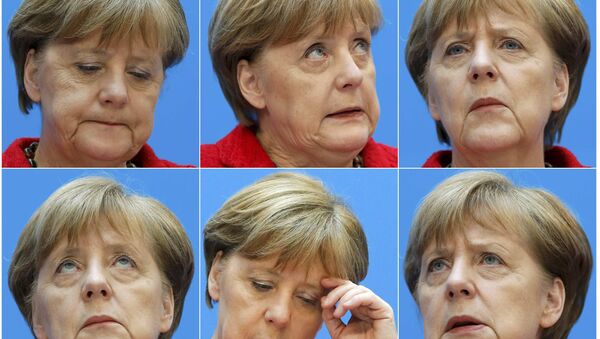Fundamental to the EU immigration policy is the Dublin Regulation which stipulated that migrants must be processed – including fingerprinting – in the state of arrival. Their entitlement to asylum – if they are genuine refugees fleeing warzones or persecution on religious or political grounds, for instance – they have to be granted asylum in that state.
Critics have long complained that the Dublin Regulation creates an unfair system that is expensive to operate and has been described by human rights groups as flawed. The UN refugee agency UNHCR said:
"Asylum seekers wait in limbo, often separated from their families and in detention, pending transfer to the state deemed responsible for their claim. In some cases, their claims are never heard."
The Dublin Regulation also lands refugees in a country not of their choice. A refugee trying to join relatives in Sweden – say – arriving in Greece will be given asylum in Greece. The refugee – critics say – would have more chance of finding work and integrating in the country where they have relatives or friends.
#refugees at Pireaus, Greece, reception conditions are not consistent with standards, this crisis was avoidable pic.twitter.com/PPZGaoCynz
— vincent cochetel (@cochetel) 15 March 2016
'Illegal Deportations'
The Dublin Agreement also means that a huge burden falls on countries such as Greece and Italy which bore the burden of the initial flights of migrants across The Mediterranean and then Greece, in particular, following the opening-up of the West Balkan route.
Humanitarian crisis reaches its climax in #Greece. MS to urgently accept relocations. Time to deliver. #Idomeni #RefugeeCrisis
— DimitrisAvramopoulos (@Avramopoulos) 11 March 2016
Ska Keller, an EU lawmaker with the Alliance '90/The Greens group who specializes in migration and EU-Turkey relations told Euractiv:
"We’ve criticized these weaknesses ever since the Dublin System was first established. The summit last Monday (March 7) [ that attempted to broker an agreement between the EU and Turkey to stem the flow of refugees], was not about open borders, but about illegal deportations, sending people back to an unsafe third country, Turkey, and selling off human rights."
"The Dublin System has died a slow death because we didn’t reform it earlier. The last reform came in 2013 and the European Parliament consulted all the member states. However, Germany was not happy with it. Now, Berlin, with the same Chancellor, wants it to change. Better late than never, but it is of little help now."
In August 2015, Germany’s Federal Office for Migration and Refugees suspended the part of the Dublin Regulation that demands that EU states conduct an examination on asylum seekers to find out in which country they originally entered the EU and whether they should be sent back.
152,697 migrants incl.refugees arrived by sea to Europe 456 dead/missing https://t.co/RFhiLzlxOY #MigrationEurope pic.twitter.com/NLEax3UIXu
— IOM (@IOM_news) March 15, 2016
As Merkel struggles politically at home, having received a caning in regional elections this week, she is also facing heavy criticism among her fellow EU leaders as she witnesses the failure of the Dublin Regulation she once so proudly defended.



